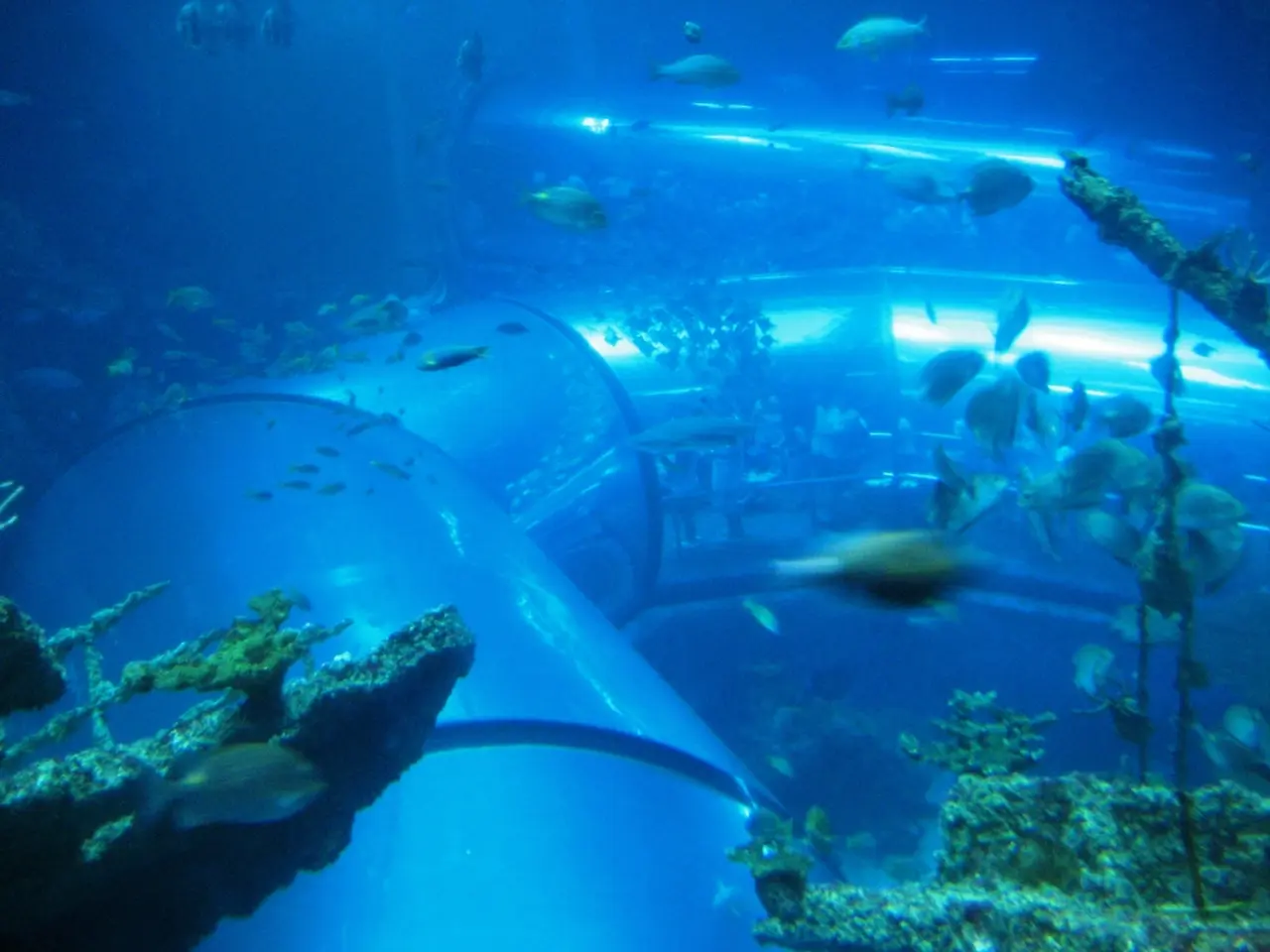Progress in Blue Technology: Pioneering a Green Tomorrow
The battle against ocean pollution and climate change is being waged with a new arsenal of technologies, collectively known as Blue Technology. This innovative approach combines biotechnology, engineering innovations, and ecological strategies to address complex ocean challenges more effectively.
One of the key advancements is the development of biodegradable alternatives to conventional plastics. Startups are producing residue-based, fully biodegradable polymers that replace traditional plastics, aiming to reduce plastic pollution in oceans and support circular economies. These alternatives are 100% bio-based and free from plastics, thus reducing marine microplastic contamination.
Another significant stride is the improvement of on-board wastewater management systems for vessels. Innovations showcased at events like the Monaco Yacht Show’s Blue Wake™ include compact, high-standard wastewater treatment systems for ships that minimize pollution discharge into marine environments. These improvements help protect coral reefs and coastal waters from untreated sewage pollution.
Blue Carbon and nature-based solutions are also gaining traction. Protecting and restoring coastal blue carbon ecosystems (mangroves, salt marshes, seagrasses) are recognized as effective nature-based solutions for both capturing carbon and reducing ocean pollution effects. Blue Carbon initiatives are enhancing their scalability and environmental impact through financial market frameworks.
Carbon sequestration technologies are another promising area. Some startups are developing particles intended to trap carbon on the ocean floor, although scientific consensus and validation remain cautious about these novel methods.
The future of Blue Technology lies in further advancements in marine renewable energy, water management, and conservation. The integration of AI and machine learning is expected to play a significant role in improving data analysis, predictive modeling, and decision-making.
Blue Technology is helping to create a future where water resources are used responsibly and marine environments are protected for future generations. It promotes cleaner, more energy-efficient transportation and food production methods in marine industries. It supports the development of carbon-capture and sequestration systems in marine environments.
Water scarcity is addressed through innovations in Blue Technology that improve water management in agriculture, industries, and urban environments. Smart water management systems, water-efficient irrigation systems, wastewater treatment, and desalination processes are all part of this solution.
Marine renewable energy is a growing sector of Blue Technology. Technologies like tidal and wave energy systems are harnessing the power of the ocean to generate sustainable energy.
Blue Technology is crucial in addressing global challenges such as water scarcity, pollution, and climate change. It is helping to combat ocean pollution through innovative waste collection methods and the development of biodegradable alternatives to harmful materials. Ocean data monitoring technologies provide crucial information about the health of marine ecosystems, ocean currents, and the impact of climate change on marine life.
The preservation of marine ecosystems is a key focus of Blue Technology, which supports conservation efforts, reduces pollution, and restores habitats. This includes advancements in ocean monitoring tools, sustainable fisheries management, ocean-cleaning devices, and coral reef restoration projects.
Innovations in ocean renewable energy, water desalination, and marine conservation technologies are transforming how we interact with the world's oceans and freshwater resources. Blue Technology is a collection of innovations designed to support the sustainable use of marine and water resources. Sustainable aquaculture practices are promoted through Blue Technology, which focuses on creating systems like closed-loop and integrated multi-trophic aquaculture (IMTA) to minimize environmental impacts.
The primary goal of Blue Technology is to protect aquatic environments, preserve biodiversity, and ensure efficient water use. It is helping to address water scarcity through innovations like water-efficient irrigation systems, smart water grids, and desalination technologies.
As significant investment—over €300 million by the SWEN Blue Ocean fund—is mobilized to support startups tackling ocean pollution, overfishing, and climate change impacts, the future of our oceans looks brighter than ever. Blue Technology is a beacon of hope, offering a sustainable solution to the pressing issues faced by our planet's oceans and freshwater resources.
- The development of biodegradable alternatives to conventional plastics, such as those produced by startups, is a part of the improvement in environmental-science, aiming to address climate-change and contribute to the fight against ocean pollution.
- Financing, through funds like the SWEN Blue Ocean fund, is being allocated to support renewable-energy projects in marine environments, which is a crucial aspect of Blue Technology that aims to combat climate-change and support sustainable practices in the industry.
- The application of artificial intelligence (AI) and machine learning in Blue Technology is foreseen to revolutionize data analysis, predictive modeling, and decision-making, thereby enhancing the efficiency of water management and marine conservation efforts.




